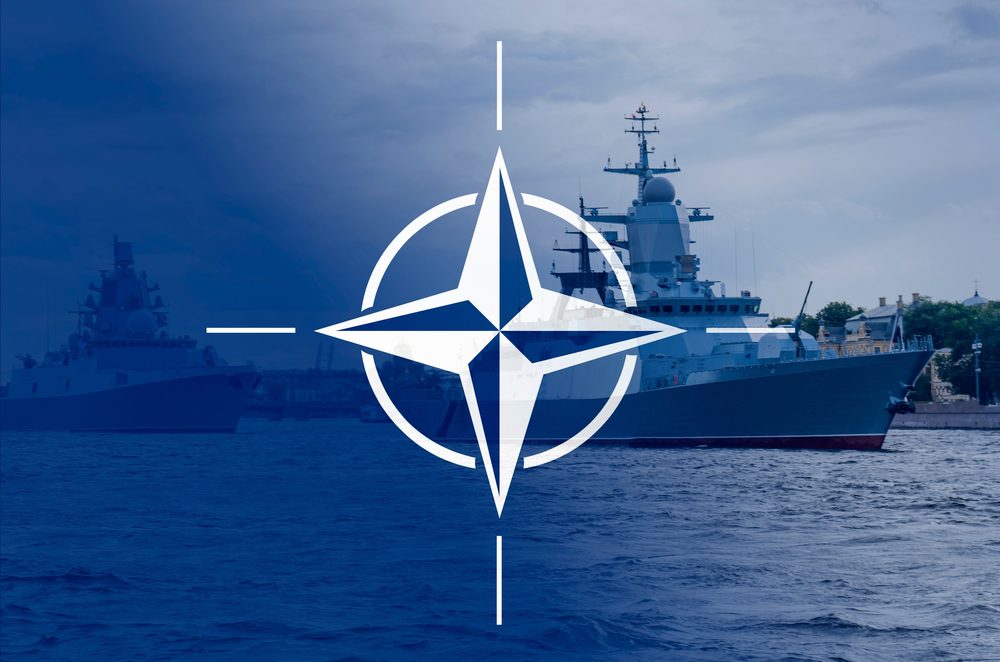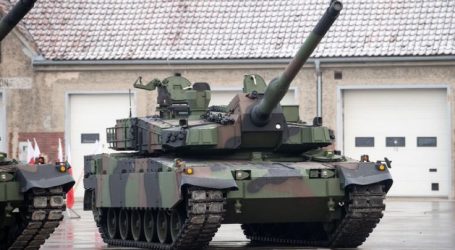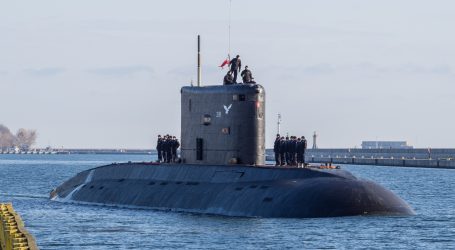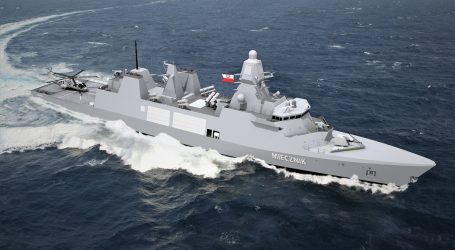Terminals in Świnoujście and Gdynia to Compete with NATO’s Largest Maritime Hubs
Representatives of the Polish Armed Forces General Staff declared during Thursday’s defense committee session that the planned container terminals in Świnoujście and Gdynia will compete with NATO’s largest maritime hubs. These investments are expected to significantly accelerate the transfer of allied forces to Polish territory.
Host Nation Support System Development
The National Defense Committee heard presentations from representatives of the Ministry of Infrastructure and the Ministry of National Defense regarding the functioning of the Host Nation Support (HNS) system, particularly in the context of expanding and modernizing Polish seaports, as well as implementing road infrastructure investment plans as key elements of military mobility and national defense and security systems.
HNS encompasses civilian and military assistance provided by a host nation to allied armed forces or organizations (such as NATO) during peacetime, crisis, or war. This assistance includes support for forces deployed, executing missions, or transiting through the host nation’s territory.
Strategic Military Mobility Requirements
Colonel Sławomir Walenczykowski, head of the P4 Logistics Department of the Polish Armed Forces General Staff, emphasized during the session that Poland, as a NATO member, can count on support under Article 5 of the North Atlantic Alliance in case of crisis. “Allied forces must not only move through Polish territory, but they must move quickly,” he noted.
Consequently, the colonel explained, this requires preparation of both infrastructure and support from Poland as the host nation in terms of troop transportation, material and technical security, provision of infrastructure and services, medical security, communications, and other essential areas. He also stressed that actions taken to prepare Poland for these tasks present concrete challenges for all state structures, both military and civilian.
Enhanced Defense Cooperation with the United States
Colonel Walenczykowski highlighted that a significant aspect of Poland’s security is the Enhanced Defense Cooperation Agreement signed between Poland and the United States on August 15, 2020. He recalled that Poland committed to providing infrastructural and logistical support at 19 agreed facilities, which would consequently allow the country to host up to 20,000 American soldiers.
The colonel also reminded that following NATO’s adoption of the host nation support concept for collective defense operations in 2024, Poland began preparing a support and supply network for allied operations on Polish territory. This system is based on designating appropriate transport and storage infrastructure aimed at securing the reception, deployment, and operational support of allied forces, including border crossings, seaports, airports, convoy support centers, material warehouses, and transportation networks.
Major Port Investment Projects
In this context, according to the General Staff, two significant planned port investments gain importance: the Deep-Water Container Terminal in Świnoujście and the Deep-Water External Port in Gdynia. “The P4 Logistics Department has been involved in planning and developing civilian-military requirements for the Świnoujście port since 2020, and we also view the Gdynia investment positively,” the colonel informed.
The construction of the deep-water container terminal in Świnoujście, in the form of an external port, represents one of the largest projects in Poland’s maritime economy. The investor is the Maritime Ports Authority of Szczecin and Świnoujście, with the Ministry of Infrastructure coordinating the undertaking.
Competition with Major NATO Hubs
The military side declares that the terminals will compete with NATO’s largest maritime transport hubs, such as Hamburg, Bremerhaven, and Rostock. The investments are expected to significantly accelerate the transfer process of allied forces while reducing the burden on the transport network for road and rail transportation.
Deputy Secretary of State in the Ministry of Infrastructure and Director of the Maritime Economy and Inland Navigation Department, Paweł Krężel, reminded that container terminal handling capacity is measured in TEU (twenty-foot equivalent units), representing the number of containers they can handle.
“The commissioning of container terminals in Świnoujście and Gdynia will increase handling potential by approximately 4.5 million TEU,” he announced.
Central Pomerania Security Pact
Additionally, Ministry of National Defense advisor Maciej Samsonowicz reported that since April last year, the defense ministry has been working on a report within the framework of the Central Pomerania Security Pact, which is nearing completion according to Ministry of National Defense information. The report analyzed over a thousand road sections in the Pomeranian, West Pomeranian, Kuyavian-Pomeranian, and Warmian-Masurian voivodeships.
“We selected dozens of investments necessary to implement from the perspective of mobility of our own and allied forces,” the minister’s advisor stated.
The Red Road Project
One topic discussed at the committee session was the so-called Red Road – a planned strategic route designed to extend Gdańsk’s Southern Bypass and connect the Port of Gdańsk with the national road network, including Sucharskiego Route and the Tri-City Bypass.
Deputy Minister of Infrastructure Stanisław Bukowiec informed that preparatory documentation in this area is “advanced,” and the development of concepts and documentation enabling the submission of an environmental decision application for its first section will be completed in the fourth quarter of this year.
“Analyses are ongoing regarding the possibility of financing it through the Security and Defense Fund,” the deputy minister said.




